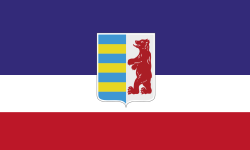lpetrich
Contributor
Back to the Atlantic Council article. Some assessments:
 Crime and Punishment - "Crime and Punishment follows the mental anguish and moral dilemmas of Rodion Raskolnikov, an impoverished ex-student in Saint Petersburg who plans to kill an unscrupulous pawnbroker for her money. Before the killing, Raskolnikov believes that with the money he could liberate himself from poverty and go on to perform great deeds. However, once it is done he finds himself racked with confusion, paranoia, and disgust for his actions. His justifications disintegrate completely as he struggles with guilt and horror and confronts the real-world consequences of his deed. "
Crime and Punishment - "Crime and Punishment follows the mental anguish and moral dilemmas of Rodion Raskolnikov, an impoverished ex-student in Saint Petersburg who plans to kill an unscrupulous pawnbroker for her money. Before the killing, Raskolnikov believes that with the money he could liberate himself from poverty and go on to perform great deeds. However, once it is done he finds himself racked with confusion, paranoia, and disgust for his actions. His justifications disintegrate completely as he struggles with guilt and horror and confronts the real-world consequences of his deed. "
He would have had a much better chance if he had not taken over Crimea. Seems like a case of "Crimea and Punishment", a pun on the title of Fyodor Dostoyevsky's novelMelinda Haring, Deputy Director, Eurasia Center, Atlantic Council: Putin’s delusional and dangerous article reveals what we already knew: Moscow cannot countenance letting Ukraine go. ...
Danylo Lubkivsky, Director, Kyiv Security Forum: Putin understands that Ukrainian statehood and the Ukrainian national idea pose a threat to Russian imperialism. He does not know how to solve this problem. Many in his inner circle are known to advocate the use of force, but for now, the Russian leader has no solutions. Instead, he has written an amateurish propaganda piece designed to provide followers of his “Russian World” ideology with talking points. However, his arguments are weak and simply repeat what anti-Ukrainian Russian chauvinists have been saying for decades. Putin’s essay is an expression of imperial agony.
Alexander Motyl, Professor of Political Science, Rutgers University-Newark: There is nothing in the article that hasn’t already been said in imperial, Soviet, or post-Soviet Russian historiography or propaganda. As the article says nothing new, it portends nothing new in Putin’s policy toward Ukraine. (With one possible exception: it doesn’t read like something someone planning a full-scale invasion would write.)
The only interesting questions are: why was it published now, and for whom was the piece written? Russians and Ukrainians have heard this before; Europeans and Americans would find the historical detail too abstruse. That leaves Ukrainian President Volodymyr Zelenskyy. ...
Brian Whitmore, Nonresident Senior Fellow, Atlantic Council: Vladimir Putin's inaccurate and distorted claims are neither new nor surprising. They are just the latest example of gaslighting by the Kremlin leader. This, after all, is the man who famously told US President George W. Bush that Ukraine was not a real country during a widely reported exchange at the 2008 NATO summit in Bucharest. Putin's claim that the "true sovereignty of Ukraine is possible only in partnership with Russia'' is grotesquely disingenuous. For Ukraine, partnership with Russia has mainly meant subjugation by Russia.
... It shows him to be a revanchist ruler who is prepared to construct false historical narratives to justify his imperial dreams.
Oleksiy Goncharenko, Ukrainian MP, European Solidarity party: Putin’s article claims to be about history, but in reality it is about the future and not the past. Ukraine holds the key to Putin’s dreams of restoring Russia’s great power status. He is painfully aware that without Ukraine, this will be impossible.
Putin’s essay does not actually contain anything new. Indeed, we have already heard these same arguments many times before. However, his article does help clarify that the current conflict is not about control over Crimea or eastern Ukraine’s Donbas region; it is a war for the whole of Ukraine. Putin makes it perfectly clear that his goal is to keep Ukraine firmly within the Russian sphere of influence and to prevent Ukraine’s Euro-Atlantic integration.


